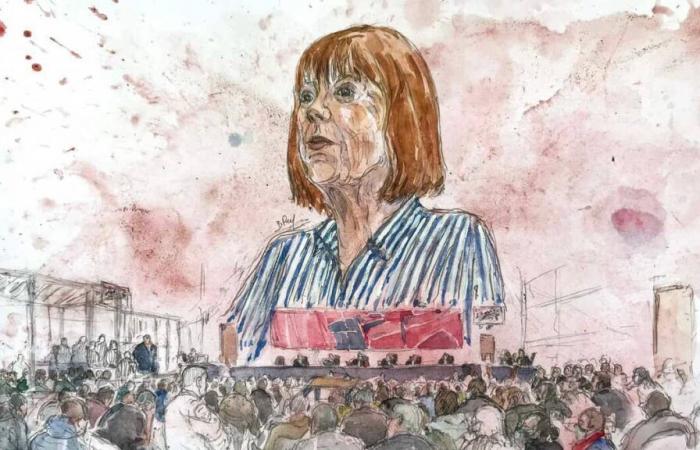After the Mazan rape trial and the appeal of 17 of the 51 men convicted, the French Minister of Equality between Women and Men, Aurore Bergé, deplored Friday that rape remained “the crime that we do not never confesses”, even “confronted with the evidence”.
A second trial will take place in the Mazan rape case, even if Dominique Pelicot, sentenced to 20 years in prison for having drugged his wife Gisèle in order to rape her and deliver her to dozens of strangers, accepted his sanction . But 17 of his co-defendants, also convicted, appealed.
“That says a lot,” responded Mme Berger at France Inter. “It’s obviously totally their right to appeal. […] But that means that, even when confronted with images [ou] to evidence, there is still this denial.
“Even faced with the fact that the first of the accused [Dominique Pelicot] himself explained the approach he had taken, that is not enough. We still do not recognize the crime we committed,” she insisted.
“Rape is the crime we never admit to. We admit to having burglarized, we admit to having knocked. We never admit to having raped. Because we consider that we have not violated. What [la femme victime] was necessarily consenting. That women’s bodies belong to us, belong to men,” said the minister.
Mme Bergé once again said he would like the notion of consent to be included in the penal code, a notion accompanied by a precise definition which will be determined by the parliamentary debate.
Furthermore, concerning domestic violence, she recalled that a bill, which she herself tabled in the National Assembly when she was a deputy, would be examined in January, in particular to include in the penal code an offense of “coercive control”, that is to say maneuvers aimed at psychologically destabilizing a victim, with the aim of preventing them from acting against their attacker.
“Violence against women is not primarily about beatings. […] There is all the control that we put in place. We will check your accounts, your outings, your phone […] your associates. We’re going to isolate you. And this isolation means that you find yourself behind closed doors” which allows physical and sexual violence to take root, she said.
“Better characterize things, make it a crime […] I think it could be a game-changer,” she concluded.






